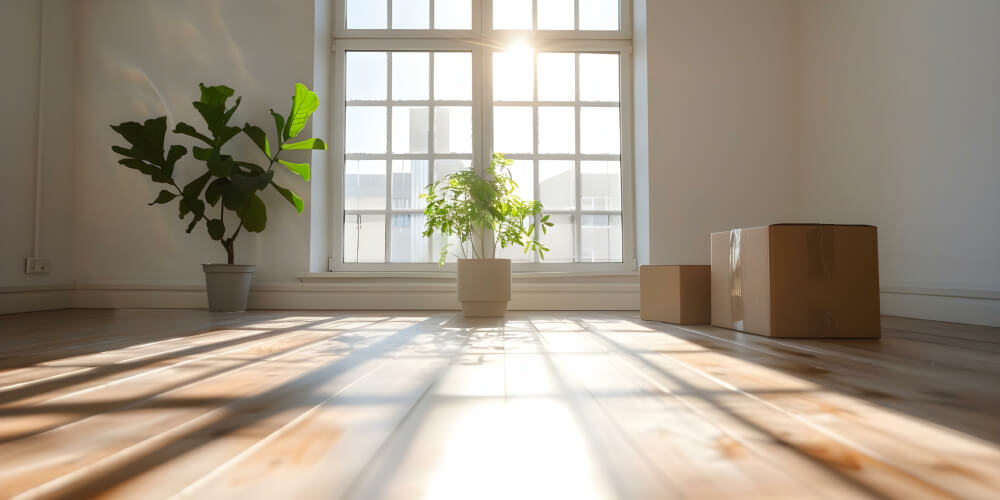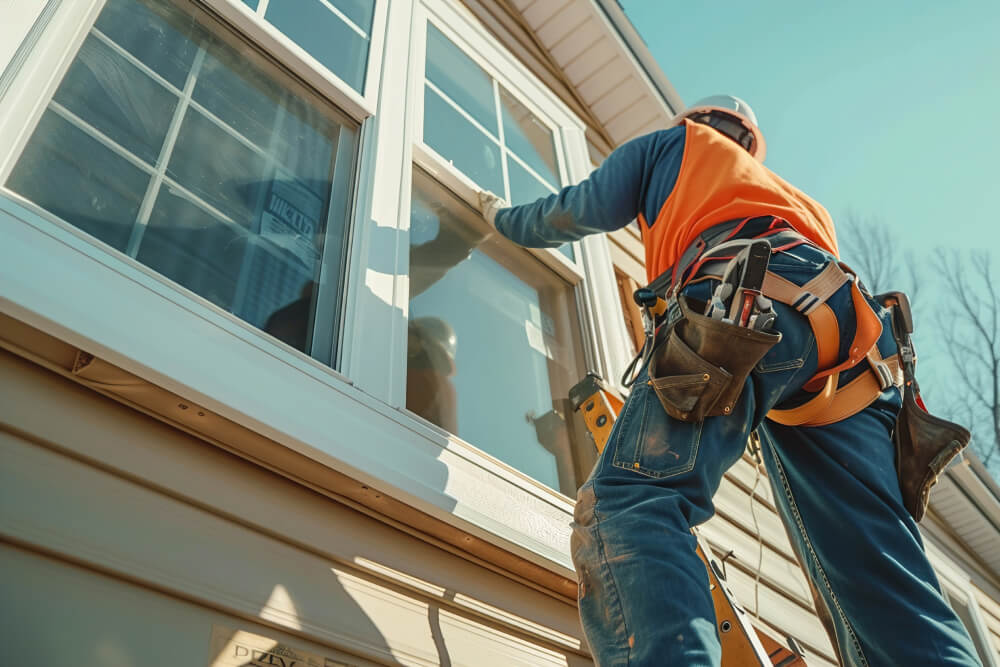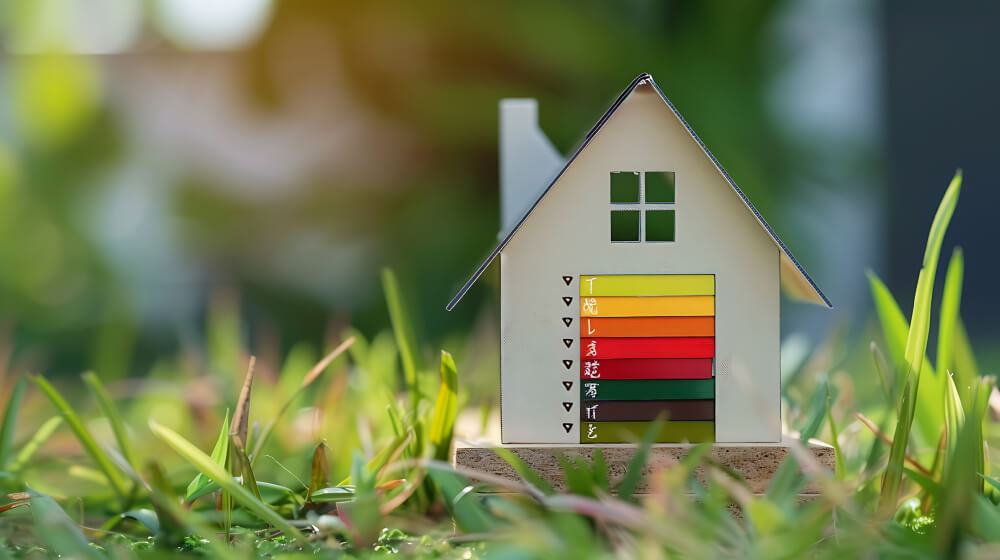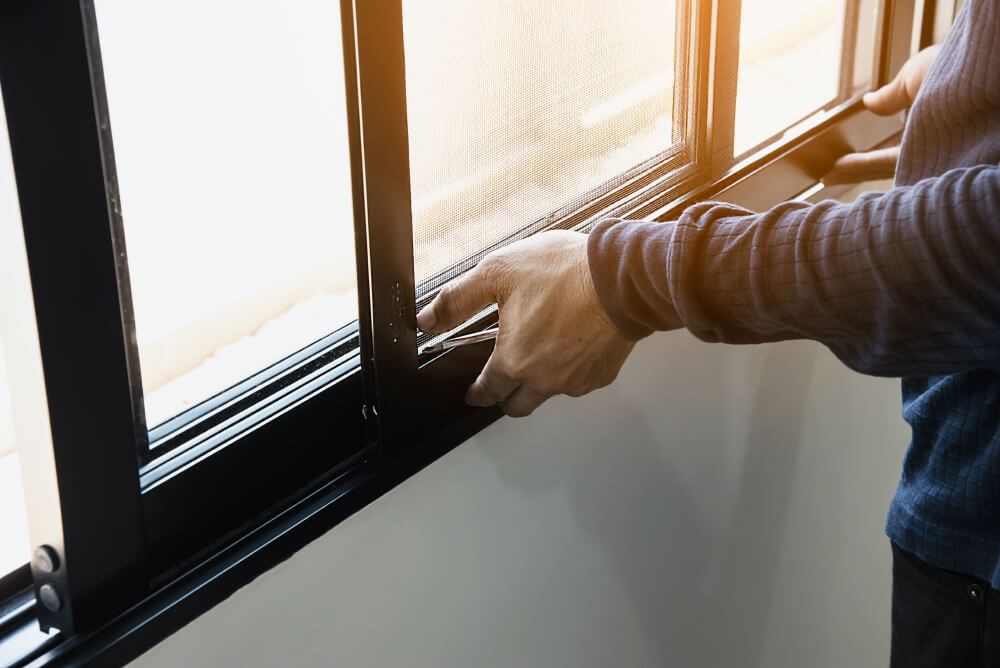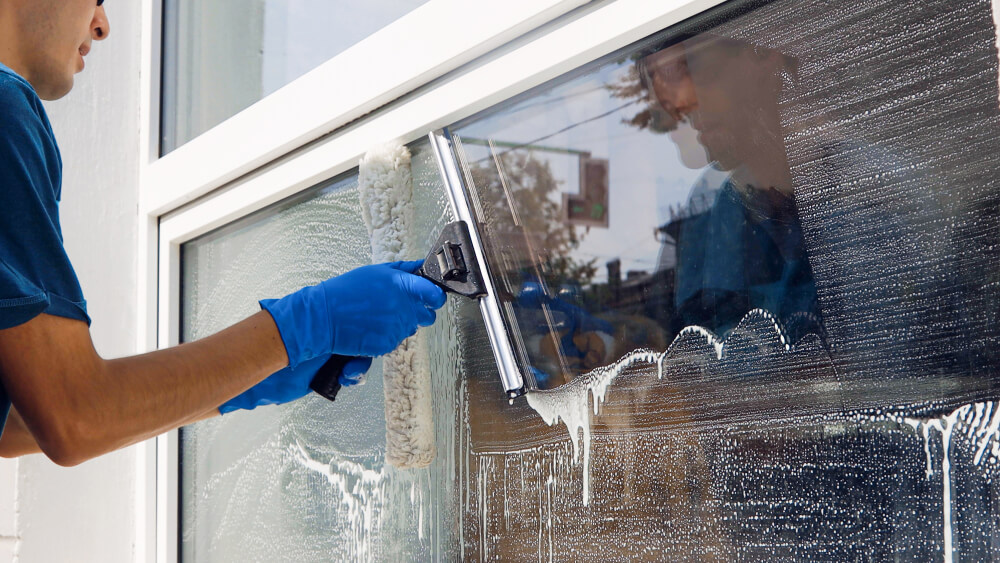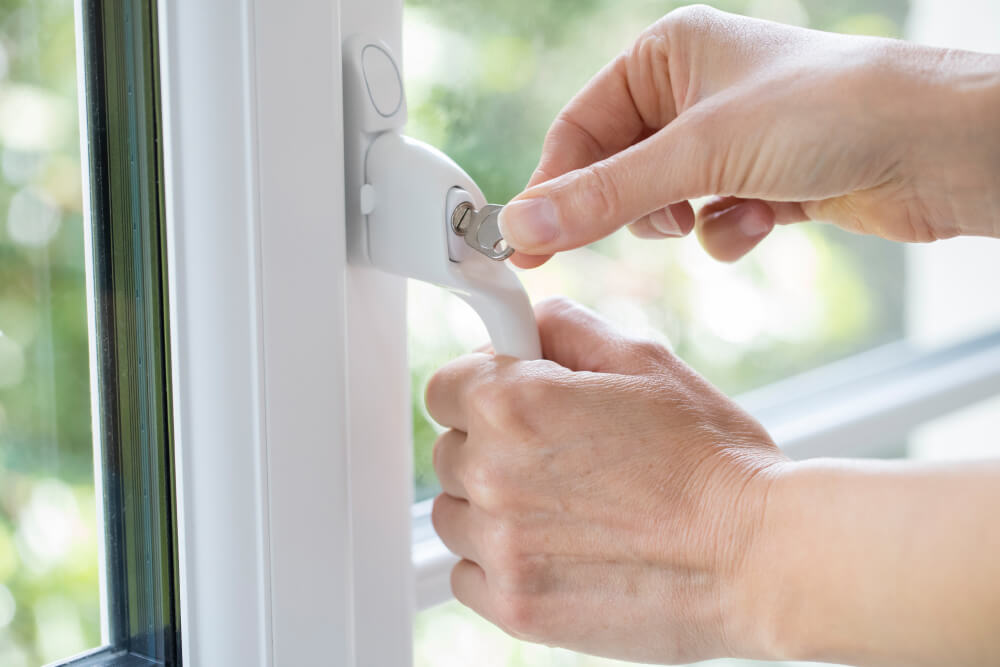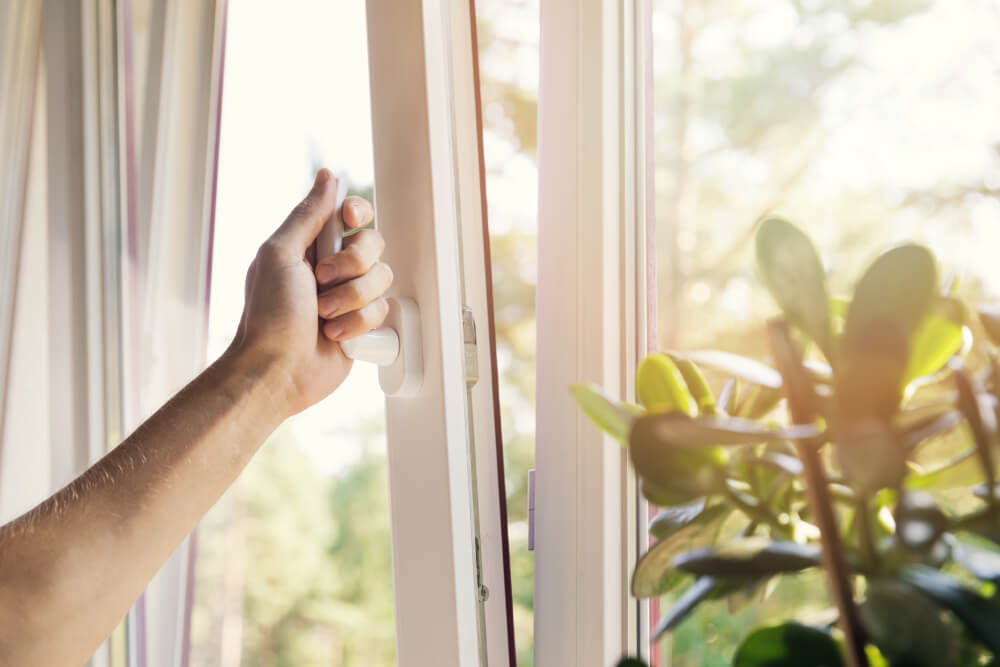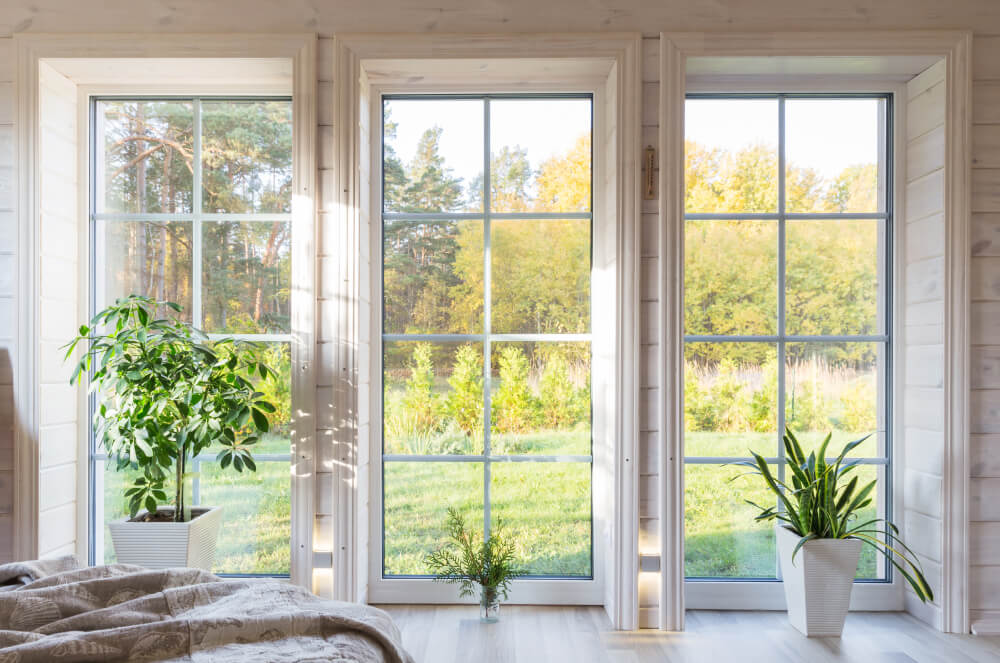1. Wood Windows
Pros:- Aesthetic Appeal: Wood windows offer a classic, timeless look that can enhance the beauty of any home. They are highly customizable, allowing for various finishes, paints, and stains.
- Insulation: Wood is an excellent natural insulator, providing good thermal performance and helping to reduce energy costs.
- Durability: With proper maintenance, wood windows can last for many years, offering long-term value.
- Maintenance: Wood windows require regular maintenance, including painting or staining, to protect them from moisture, rot, and insect damage.
- Cost: Wood windows tend to be more expensive than other materials due to their aesthetic appeal and insulation properties.
- Susceptibility to Elements: Without proper care, wood can warp, crack, or rot when exposed to harsh weather conditions.
2. Vinyl Windows
Pros:- Low Maintenance: Vinyl windows are virtually maintenance-free, as they do not require painting or staining and are resistant to moisture, rot, and insect damage.
- Cost-Effective: They are generally more affordable than wood and fiberglass windows, making them a popular choice for budget-conscious homeowners.
- Energy Efficiency: Vinyl frames provide good thermal insulation and can help reduce energy costs.
- Variety of Styles: Available in various colors and styles, vinyl windows can complement a wide range of home designs.
- Aesthetic Limitations: While vinyl windows come in various styles and colors, they do not offer the same level of customization as wood windows.
- Durability Concerns: Lower-quality vinyl windows can warp, fade, or become brittle over time, especially in extreme weather conditions.
- Environmental Impact: Vinyl is made from PVC, which is not biodegradable and can have negative environmental impacts during production and disposal.
Join HICP Homeowner’s Alliance
Connect with experts, get special discounts and enjoy member benefits
3. Aluminum Windows
Pros:- Strength and Durability: Aluminum windows are strong and durable, capable of withstanding harsh weather conditions without warping or cracking.
- Low Maintenance: They require minimal maintenance, as they do not rust, rot, or corrode.
- Sleek Appearance: Aluminum windows offer a modern, streamlined look with thin frames that maximize glass area and natural light.
- Cost: Generally, aluminum windows are less expensive than wood and fiberglass windows.
- Poor Insulation: Aluminum is a poor insulator, which can result in higher energy costs. However, thermal breaks (insulating barriers within the frame) can improve their energy efficiency.
- Condensation: Aluminum windows are prone to condensation, which can lead to moisture issues and potential mold growth.
- Aesthetic Limitations: They may not offer the same warm, inviting appearance as wood windows.
4. Fiberglass Windows
Pros:- Durability: Fiberglass windows are extremely durable, resistant to warping, rotting, and corrosion. They can withstand extreme weather conditions.
- Low Maintenance: They require minimal maintenance, as they do not need painting or staining and are resistant to moisture and insect damage.
- Energy Efficiency: Fiberglass frames provide excellent thermal performance, helping to reduce energy costs. They can be filled with insulation to further enhance energy efficiency.
- Aesthetic Flexibility: Fiberglass windows can be painted and customized to match the appearance of wood, offering both durability and aesthetic appeal.
- Cost: Fiberglass windows tend to be more expensive than vinyl and aluminum windows, although they offer long-term value due to their durability and energy efficiency.
- Limited Availability: While becoming more popular, fiberglass windows may not be as widely available as other materials.
5. Composite Windows
Pros:- Durability: Composite windows are made from a blend of materials, such as wood fibers and polymer resins, offering high durability and resistance to rot, warping, and insect damage.
- Low Maintenance: They require minimal maintenance, as they do not need painting or staining and are resistant to moisture and insect damage.
- Energy Efficiency: Composite frames provide excellent thermal performance, helping to reduce energy costs.
- Aesthetic Flexibility: Composite windows can be designed to mimic the appearance of wood, providing both durability and aesthetic appeal.
- Cost: Composite windows can be more expensive than vinyl and aluminum windows, although they offer long-term value due to their durability and energy efficiency.
- Limited Availability: Composite windows may not be as widely available as other materials.
6. Clad Windows
Pros:- Durability: Clad windows feature a wood interior frame covered with an exterior cladding made of materials like aluminum, vinyl, or fiberglass, offering high durability and resistance to the elements.
- Low Maintenance: The exterior cladding provides protection against moisture, rot, and insect damage, reducing the need for maintenance.
- Aesthetic Appeal: The wood interior offers a warm, classic look, while the exterior cladding provides durability and protection.
- Energy Efficiency: Clad windows offer good thermal performance, helping to reduce energy costs.
- Cost: Clad windows tend to be more expensive than other window materials due to their combination of wood and cladding.
- Potential for Water Intrusion: If not properly installed, clad windows can be susceptible to water intrusion, which can damage the wood interior.
Choosing the right window material is a crucial decision that impacts your home’s energy efficiency, maintenance requirements, durability, and aesthetic appeal. Each material has its own set of pros and cons, and the best choice depends on your specific needs, preferences, and budget. Wood windows offer classic beauty and insulation but require regular maintenance. Vinyl windows are low-maintenance and cost-effective but may have aesthetic limitations. Aluminum windows provide strength and a sleek look but have poor insulation. Fiberglass windows offer durability and energy efficiency but come at a higher cost. Composite windows combine the benefits of multiple materials but may be expensive. Clad windows offer a blend of wood’s beauty and other materials’ durability but require proper installation to avoid water damage.
By understanding the advantages and disadvantages of each window material, you can make an informed decision that enhances your home’s comfort, energy efficiency, and value.

